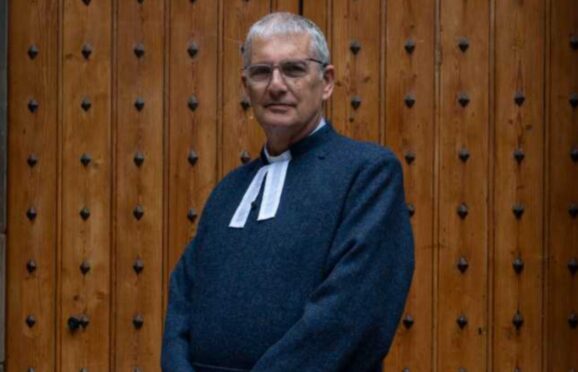
Faith leaders have warned millions of Scots – including children – will be plunged into poverty if the UK Government does not ensure benefits rise in line with inflation.
The most senior figures in the nation’s largest faiths – including the Church of Scotland, the Roman Catholic Church and Islam – said ministers had to protect the poorest in society.
Archbishop of Glasgow William Nolan said it was “immoral” and an “injustice” to make the most vulnerable in society suffer a real-terms cut in their income, while the Rt Rev Dr Iain Greenshields, Moderator of the General Assembly of the Church of Scotland, said millions of Scots were facing destitution.
Liz Truss has faced fierce criticism from her own party for refusing to recommit the Conservative Government to a promise to increase benefits in line with inflation. She says nothing has been ruled out and a spending plan will be revealed in November.
Nolan said: “For many decades the UK prided itself on providing a reasonable measure of social security to its citizens who had fallen on rough times – be that through illness, old age, unemployment or poverty.
“The proposal that the poorest people in our midst – those relying on benefits – may see a real-terms cut in their already meagre support seems so immoral. It is essential the Government commits to upgrading benefits to at least keep pace with inflation. The poor must not be sacrificed in an attempt to shore up the Government’s credibility with the markets.
“Making the poor poorer is not an act of fiscal prudence – it is an act of injustice.”
Private Cabinet disagreement over benefits policy broke out at the Conservative Party conference in Birmingham. Penny Mordaunt, Leader of the House of Commons, said she supported benefits keeping pace with inflation and said the Government should not “try to help people with one hand and take away with another”.
Greenshields said: “At a time of crisis, we look to our political leaders to make the wisest decisions that will alleviate hardship and help those who are struggling most against rising prices.
“Economic planning must seek to minimise poverty and reduce inequality in a way which helps communities and protects the environment. I hope and pray that the UK Government will remain true to a promise that benefits will be increased by the rate of inflation.
“To fail to do so will consign many millions of our fellow citizens to even greater difficulty.”
Zara Mohammed, Secretary General of the Muslim Council of Britain, said she was seeing many people struggling with the increasing cost of living and spiralling energy bills. “The UK Government needs to act now to put more money in people’s pockets,” she added.
“Nobody should have to choose between food or heat or have to skip meals to make ends meet. Without significant support, many people will be dragged further into destitution as winter sets in.”
Other religious figures also raised their fears. The head of the Quakers in Scotland said benefits had to be linked to inflation as she was already witnessing a deepening sense of hopelessness among impoverished Scots. Elizabeth Allen, Clerk of the General Meeting for Scotland, said: “There is a sense of hopelessness. The Tories have often made it known they are the party that supports family values but they are undermining families.”
Major David Cavanagh, of the Salvation Army’s Scotland Office, also said more government support was desperately needed as so many people were “locked out” of the job market.
He had grave reservations about a real-terms cut to benefits, adding: “We would like to see additional support provided to help people back into work.
“Many people are locked out of the job market through no fault of their own, such as a lack of relevant skills, childcare responsibilities or living in an area where traditional industries have shut down.”
Faith leaders spoke out as the Child Poverty Action Group, a charity, warned 200,000 more children would be pushed into poverty if benefits rose in line with wages rather than inflation.
The news came as Scottish Social Justice Minister Ben Macpherson co-signed a letter to UK Pensions Secretary Chloe Smith, calling for action on benefits, alongside his counterparts in Wales and Northern Ireland.
They wrote: “We are deeply concerned about the impact the cost of living crisis is having on poverty levels, particularly child poverty.
“In April 2020 your Government introduced a £20 per week uplift in Universal Credit to help people during the pandemic. This provided a vital financial safety net for many individuals and families.
“Despite repeated calls from the public, political and other representatives the uplift was removed in October 2021. This has undoubtedly contributed to the hardship that people are now experiencing.”
The Department for Work and Pensions said: “The Secretary of State commences her statutory annual review of benefits and State Pensions from late October using the most recent prices and earnings indices available.
“We are committed to looking after the most vulnerable, which is why we’ve delivered at least £1,200 of support to families this winter while also saving households an average of £1,000 a year through our Energy Price Guarantee.
“This support is on top of the annual working-age benefits bill which is over £87 billion. The UK Government has also provided an extra £123 million for the Scottish Government to help vulnerable families at their discretion.”

Enjoy the convenience of having The Sunday Post delivered as a digital ePaper straight to your smartphone, tablet or computer.
Subscribe for only £5.49 a month and enjoy all the benefits of the printed paper as a digital replica.
Subscribe © Andrew Cawley
© Andrew Cawley